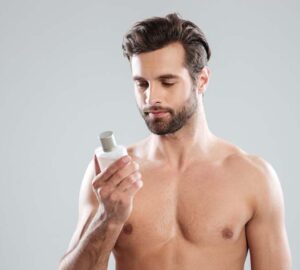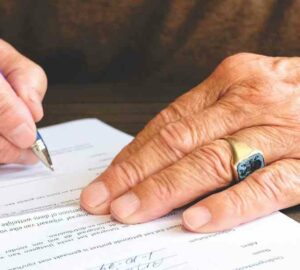You may think that there is no medical disorder in the world that can surpass AIDS when it comes to the myths and tales surrounding it. But there is another widely misunderstood disorder that plagues common sense. And that is Hypoactive Sexual Desire Disorder (HSDD).
HSDD is not very well-known, you won’t find this term being thrown around as much as some others. Why? Because it is related to the female libido?
HSDD is also known as female sexual arousal or interest disorder because women who suffer from it have a decreased sexual drive.
Shocked? Most people are! It is common for women to ignore the symptoms of this condition, thinking of it as a result of old age, menopause, stress, or busy work. Some even think there is something wrong with them, either physically or mentally!
Having a low sex drive does not mean there is something psychologically or physically wrong with you. It is a medical condition that requires proper treatment! The only way to start considering it a serious condition is by bursting the several myths that nullify its importance.
So, let’s burst all these unwanted bubbles and take you on this informational journey! For many, this is the first step to a better future for thousands of women around the globe.
Myth #1: HSDD Is A Common Symptom Of Aging
It is completely normal for the sex drive in women to go up and down during their life. In fact, it can fluctuate during a month too! However, most people believe that HSDD is caused by aging and that women become less sexually inclined as they grow old. Although that is true in some cases, it is not true in all cases and so it is important to differentiate this phenomenon from HSDD.
HSDD entails a continuous decline in sexual drive, while the aging-related component is temporary. Let us look at some common symptoms of HSDD to understand how it is different from a temporary reduction in sexual desires.
- Severe repulsion towards a partner initiating sexual intercourse
- Severe loss or decline in desire to initiate intercourse
- Severe loss or decline in sexual thoughts
Such symptoms are not a result of behavioral changes but rather medical alterations. They may also be because of the following factors:
- If a woman induces menopause surgically (through the removal of one or both ovaries)
- Hormonal changes
- Cancer, diabetes, or other chronic conditions
- Decreased self-esteem
- Difficulties in relationships
- Illnesses affecting the brain
Myth #2: Women Abuse The Treatment For HSDD
Treatment for HSDD is possible. However, a common misconception surrounds the medications used for this purpose, mainly Addyi. People believe that since these medications can cause low blood pressure and even result in a user passing out, women can use them for recreational purposes.
That is absolutely untrue because no one can get these medications without a prescription. So they are only used for medicinal purposes, nothing else.
Myth #3: Women Use It Like Viagra
The medications used to treat HSDD do not work like Viagra, no matter how much people think they do. A common misconception is that HSDD medications are to women what Viagra is to men, which is not true at all. They also have misconceptions about possible Addyi weight loss, when this medication does not affect body mass at all.
Men use Viagra to keep their erections during sexual intercourse, whereas Addyi for HSDD does not cause prominent physical changes in women. It only works on particular chemicals in the brain, improving sexual drive. In fact, women have to take these medications every night, which is not the case for men, at least not the normal ones!
Myth #4: HSDD Does Not Require Treatment
This is perhaps one of the biggest misconceptions that surround HSDD. Much like most mental health conditions, people do not consider HSDD a medical illness. They believe that women with this condition do not need to get treatment or that treatment should not be their first priority.
This does not hold true, as the symptoms of HSDD are not something you should sweep under the rug. A woman’s sexual health is massively important to her overall physical and mental health. Disturbed sexual health can negatively affect a marriage, partnership, or quality of life and even cause anxiety, depression, and social insecurity. There are even some medical conditions that have been known to develop, such as back pain, muscle fatigue, and comorbid medical conditions.
Thus, treatment for HSDD is critical and typically includes sex therapy, marital counseling, estrogen therapy, and combination therapy. But the most common of all is Addyi (flibanserin), a drug approved by the Food and Drug Administration (FDA). The FDA also approved another self-injectable medication called Vyleesi (bremelanotide) in 2019. However, injecting this drug can cause severe nausea and allergic reactions at the pinch site.
Myth #5: It Can Be Used On Unsuspecting Women
People think that since Addyi can be used to treat low sexual drive in women, they can use it to increase sexual drive in unsuspecting women. Medications used to treat this medical condition do not take immediate effect. They are not like GHB, commonly known as the date rape drug!
These medications are just like other clinical drugs and take time to treat disorders. Most women have to take this drug every night for it to have an effect! So even if you get your hands on such medications and give them to an unsuspecting woman, she would remain completely conscious of her surroundings.
Myth #6: Very Few Women Have HSDD
The notion that HSDD is a very rare disorder is also completely false. It is, in fact, one of the most common sexual disorders affecting women and can occur at any age.
The North American Menopause Society gives the following statistics of women who suffer from this condition:
- Ages 18-44: 8.9%
- Ages 45-64: 12.3%
- Ages 65 and older: 7.4%
The only reason this condition is considered uncommon is the lack of awareness around it.
Myth #7: HSDD Medication Can Make Women Hypersexual
This myth surrounding HSDD is quite funny! People believe that since HSDD medication can treat hyposexual interests, it can also make women hypersexual.
But HSDD medication is not an aphrodisiac. It only interferes with certain chemical reactions in the brain to help women desire people they are attracted to in a normal way.
Summing Up
Considerable stigma surrounds HSDD, primarily because it is a disorder that targets a taboo topic in most cultures. But this stigma interferes with its proper treatment and diagnosis, leading many women to miss out on treatment and to continue living an unhealthy life.
We hope this guide helped you remove some of the prime misconceptions around this disease and take the first step to vindicating it!




